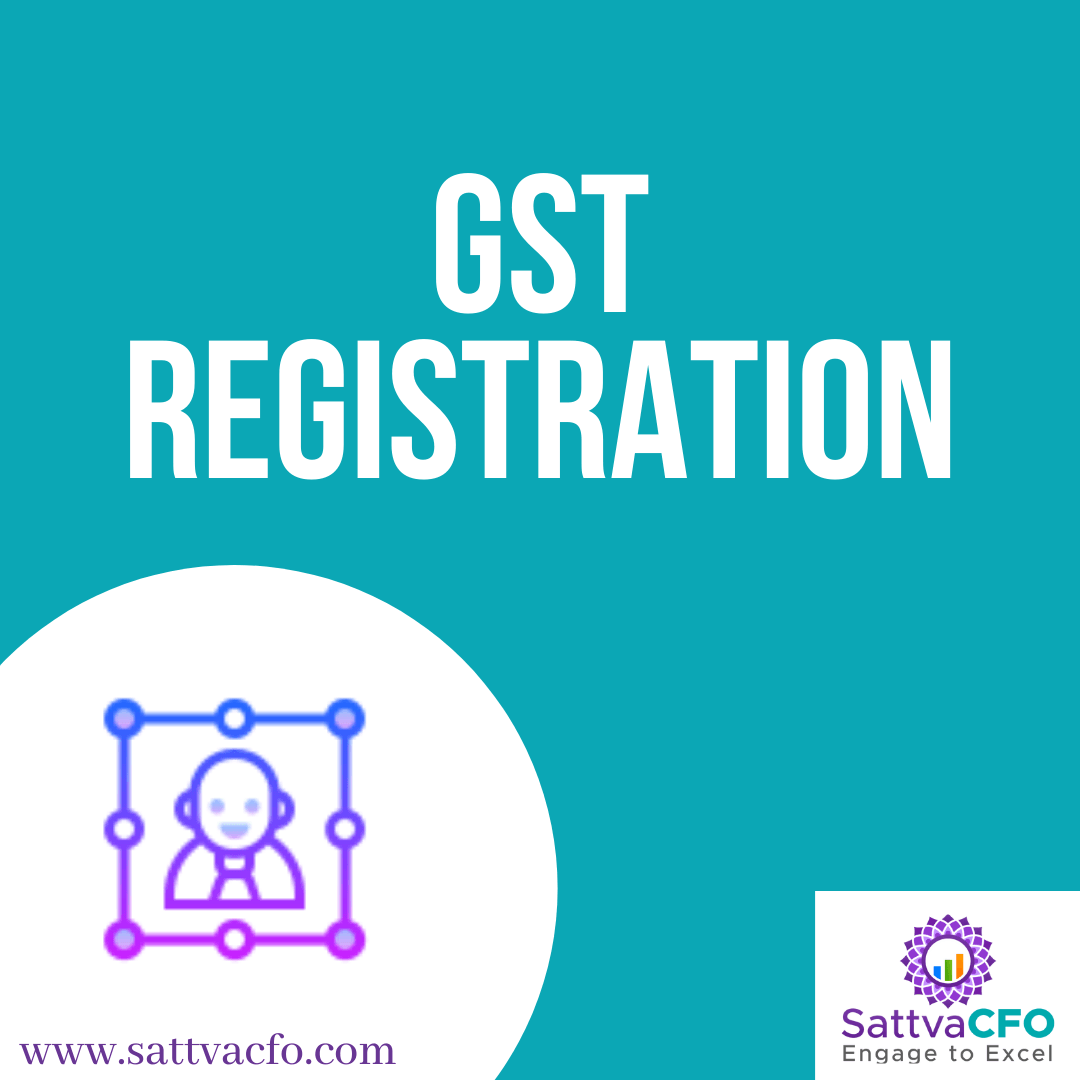All Indian service providers merchants, and manufacturers are subject to the Goods and Services Tax (GST). A number of central taxes, such as Service Tax, Excise Duty, and CST, as well as state taxes, such as Entertainment Tax, Luxury Tax, Octroi, and VAT, are merged into a single tax. GST – Goods & Service Tax Registration Service in India, Get GSTN registration number.
What is GST Registration?
The word GST full form stands for Goods and Services Tax. Under the GST regime, those business firms whose annual turnover is more than Rs 20 lakh (in case of North Indian states and hill states the turnover should be more than Rs 10 lakhs) should register themselves under the GST as a normal taxable person and this is known as the GST Registration. GST -Goods & Service Tax Registration.
Who Needs a GST Registration?
- A casual taxable person or a non-resident taxable person
• A business whose turnover is more than Rs 20 lakh per annum (Rs 10 lakhs for Uttarakhand, North Eastern States, Himachal Pradesh, Jammu & Kashmir)
• Supplier’s agent & input service distributor
• All the e-commerce aggregator
• Individuals who supply using e-commerce aggregator
• Individuals who pay tax under the reverse charge mechanism
• Those who have registered under the pre-GST Law (VAT, Service Tax, excise and so on)
• Individuals who supply online information and provide database access or retrieve services from abroad to an individual in India, other than a registered taxable person. GST – Goods & Service Tax Registration Service in India, Get GSTN registration number.
Documents Required for Online GST Registration
The online GST registration requires the following documents:
- Proprietorship
- PAN Card and address proof of proprietor
- Limited Liability Partnership (LLP)
- PAN Card of LLP
- LLP Agreement
- Partners’ names and address proof
- Private Limited Company
- Certificate of Incorporation
- PAN Card of Company
- Articles of Association, AOA
- Memorandum of Association, MOA
- Resolution signed by board members
- Identity and address proof of directors
What is GST Registration Process?
SattvaCFO’s Goods and Services Tax (GST) Registration services assist you in registering your business for GST and obtaining your GSTIN. SattvaCFO’s GST specialists will advise you on the GST applicability and compliance requirements for your company and help you register for GST.
How to check GST Registration Status via online?
Once an individual or a business firm apply for GST registration, an Application Reference Number (ARN) will be generated. It is important to note down the ARN for further reference. Generally, it takes 15 days to process a GST registration application form, but one can check for the GST registration status through online on the GST web port by following the below-mentioned steps:
Step 1: Visit the GST web page
Step 2: Go to Services > Registration > click on the ‘Track Application Status’
Step 3: Now enter the ARN which was generated at the time of submitting the GST application form and enter the captcha code to proceed further and now click on ‘Search’
Step 4: The ARN will generate one of the following below mentioned statuses:
Provisional – It means that the application has not been filed yet but the provisional identity has been already issued.
Pending for Verification – This means that the application has been successfully submitted but the verification is yet to be done.
Validation against Error – This means that the PAN filled in the application form does not match with the details provided by the Income Tax Department. In this case, the form has to be resubmitted.
Migrated – This means that the application for migration to GST has been done successfully.
Cancelled – This means that the registration has been cancelled.
What is the penalty for not registering under the GST?
An individual is liable to pay a fine of 10% of the tax amount due subject to a minimum of Rs 10,000.
In case if an individual has deliberately evaded payment of tax then he will be penalized at 100% of the tax amount due.
What is aggregate turnover as per GST Law?
As per the GST Law under section 2(6) of the CGST/SGST Act, an Aggregate turnover includes the aggregate value of
– all exempt supplies
– all taxable supplies
– export of goods/services
– all inter-state supply of a person having the same PAN.
All the above mentioned will be calculated across the country and it excludes taxes charged under the CGST Act, SGST Act, UTGST Act, and the IGST Act.
The term aggregate turnover includes all supplies made by the taxable person, either on his own account or on behalf of all his principals.
The term Aggregate turnover does not include the value of supplies on which tax will be levied on reverse charge basis and value of inward supplies.
What is GSTIN?
GSTIN stands for the GST Identification number, which is assigned to every dealer who registers under the GST law.
GSTIN is a 15 digit number. The following is the break-up of the GSTIN:
- The first two digits of GSTIN represents the state code, which is a unique one and this is taken from the Indian Census of 2011.
- The following 10-digits will be the Permanent Account Number of the taxpayer.
- The thirteen-digit is assigned based on the number of registration within a state.
- The fourteenth will be the letter ‘Z’ by default.
- The last one will be for check code, it can either be an alphabet or a number.
What is the GSTN (Goods and Service Tax Network)?
The GSTN (Goods and Service Tax Network) is a private limited corporation that operates under section 8 (non-profit). GSTN serves as a one-stop shop for all of your indirect tax needs. GSTN is in charge of managing the GST Indirect Taxation portal, which allows you to prepare, file, correct, and pay your indirect tax responsibilities.
What are the benefits of registering under GST?
For regular enterprises that are registered:
- Take advantage of the input tax credit.
- Interstate commerce is unrestricted in this state.
Dealers in compositions:
- Only a small percentage of people comply.
- Tax obligation is reduced.
- Working capital is less impacted.
For firms that voluntarily register for GST (with a turnover of less than Rs.40 lakhs*)
- Take advantage of the input tax credit.
- Interstate commerce is unrestricted in this state.
- Register for online and e-commerce websites with ease.
- Gain a competitive advantage over your competitors.
What is the penalty for not registering under the GST?
A fine of 10% of the tax amount owed, with a minimum of Rs 10,000, is imposed on a person.
If a person has purposefully avoided paying taxes, he will be fined 100 percent of the sum owed.
What is aggregate turnover as per GST Law?
An aggregate turnover, as defined by the GST Law under section 2(6) of the CGST/SGST Act, is the total value of all exempt supplies, all taxable supplies, all export of goods/services, and all inter-state supplies made by a person with the same PAN.
All of the aforementioned will be computed across the country, with the exception of taxes levied under the CGST, SGST, UTGST, and IGST Acts.
The total turnover includes all supply made by the taxable person, whether on his own account or on behalf of all his principals.
The value of inbound supplies and the value of supplies that will be taxed on a reverse charge basis are not included in aggregate turnover.
What are the components of GST?
GST will include three tax components: a central component (Central Goods and Services Tax or CGST) and a state component (State Goods and Services Tax or SGST), where both the centre and the states would impose GST on all entities, i.e. when a transaction takes place inside a state. Inter-state transactions, i.e. when a transaction occurs from one state to another, will be subject to the Integrated Goods and Services Tax (IGST), which will be collected by the central government.
What are the GST tax rates?
- Exempt items are those that are deemed essential requirements and are thus not taxed.
- Household essentials and life-saving medications, for example, are taxed at 5%.
- Computers and processed foods are taxed at a rate of 12 percent.
- Capital products, industrial intermediates, and services, as well as hair oil, toothpaste, and soaps, are all taxed at 18 percent.
- Luxury goods are taxed at a rate of 28%.
How to prepare for GST application?
Filing of an Application
The application will be completed and filed after all of the required papers have been obtained. The ARN number will be given right away.
Certificate of GST Registration
The GST registration certificate and GSTIN will be provided when the GST officer has verified the GST application and other required papers. The GST registration certificate can be accessed through the GST Portal; no physical copies of the certificate will be given.
Penalties for Failure to Register for GST
In India, all taxable people who fail to register for GST face a direct penalty under Section 122 of the CGST act.
GST -Goods & Service Tax Registration
FAQ’s on GST registration
Is GST registration mandatory?
Yes, once your annual turnover surpasses the set thresholds, you must register for GST. To see the most up-to-date threshold limitations for GST registration, go here.
Can I apply for multiple GST registrations?
If a firm operates in more than one state, the taxpayer must register for GST in each state separately. For example, if a car firm sells in both Karnataka and Tamil Nadu, it must file for separate GST registrations in both states.
Can I apply for multiple registrations within a state?
Yes, a company may file for as many GST registrations as it wants within a state. For convenience of doing business, the practise of granting numerous GST registrations exclusively for various company sectors within a state has been abolished.
What turnover should be considered for GST registration threshold limit?
When calculating turnover, aggregate turnover should be taken into account. Aggregate turnover refers to the total value of all taxable supplies made in India, excluding inbound supplies subject to reverse charge but includes exempt supplies, exports of goods or services or both, and inter-state supplies made by people with the same PAN. It should be noted that when computing aggregate turnover, CGST, SGST, UTGST, IGST, and cess should be omitted. GST – Goods & Service Tax Registration Service in India, Get GSTN registration number.
Who can Register for the Composition scheme under GST?
The Composition plan is available to small taxpayers who want to deal with fewer compliances and pay reduced GST rates.
The Composition programme is available to traders with an annual turnover of less than Rs 1.5 crore. The current limit for North-Eastern states and Himachal Pradesh is Rs.75 lakh. To learn more about the Composition system, go here.
The Composition programme has also been extended to service providers with an aggregate sales of up to Rs.50 lakhs. To learn more about the Composition Scheme for Service Providers, go here.
Why choose SattvaCFO for obtaining GST Registration?
The following are some of the most compelling reasons to pick us:
- Online GST registration and GST Identification Number are simple to obtain.
- Compliances aren’t a problem because we handle everything.
- All of your returns will be properly filed.
- Our legal professionals can walk you through the whole procedure and answer any questions you may have.
The GST Forms include a lot of complicated fields, despite the fact that the GST portal has a user-friendly design. As a result, it is strongly advised that you obtain professional assistance in submitting the application, completing the appropriate processes, filing your returns, and completing other portal obligations. GST – Goods & Service Tax Registration Service in India, Get GSTN registration number.




